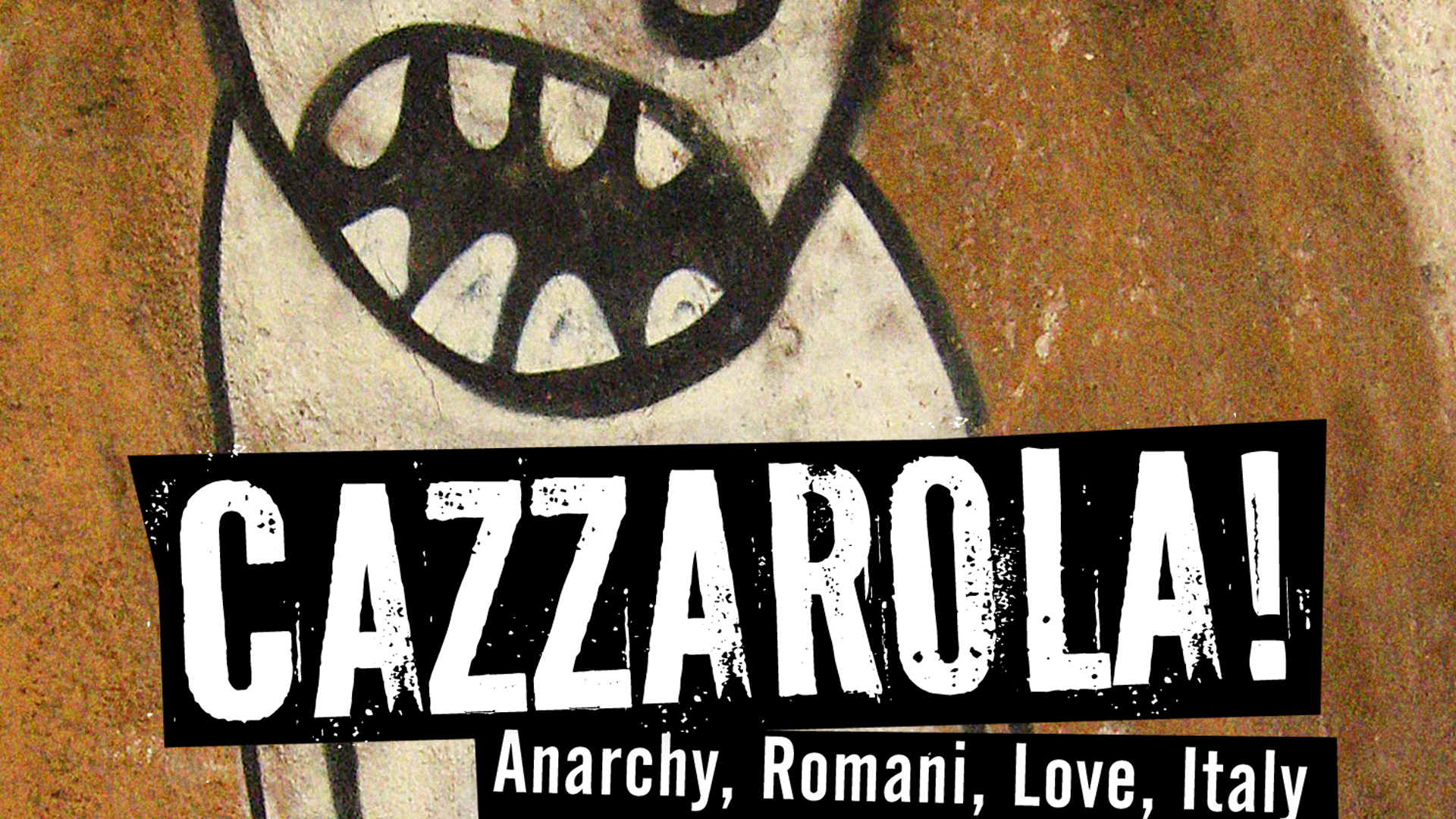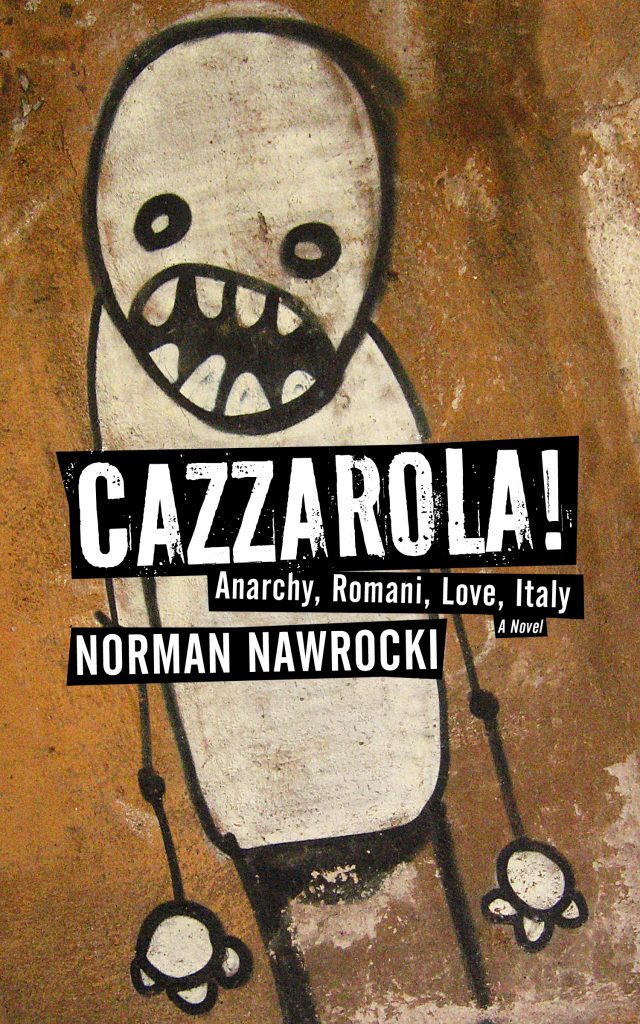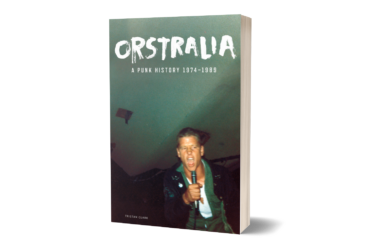by Rana Bose
Montreal Serai
October 6th, 2013
Norman
Nawrocki … a Montreal legend for his music of protest – and for his
daring, insurrectionary performance theatre — was interviewed for this
issue by Rana Bose, Serai Editor and Montreal novelist.
Norman’s new book details : Cazzarola!: Anarchy, Romani, Love, Italy
A gripping novel that is at once political, historical, and romantic, Cazzarola! spans 130 years in the life of the Discordias, a fictionalized family of Italian anarchists. It details the family’s heroic, multigenerational resistance to fascism in Italy and their ongoing involvement in the anarchist movement. The Discordias navigate decades of political, economic, and social turmoil — from early 20th-century factory strikes and occupations, to armed anarchist militias and attempts on Mussolini’s life, to postwar student and labor protest, and now to confrontations with the newest wave of contemporary neo-fascist violence sweeping Europe. Against this historical backdrop, Antonio falls in love with Cinka. She is a proud but poverty-stricken Romani refugee from the “unwanted people,” without a country or home, forced to flee, again and again, searching for peace. Theirs becomes a life-changing and forbidden relationship.
MS: Hi Norman-Thanks for once again gracing Montreal Serai–or should I say for making a welcome intervention in these pages. When we thought of the theme “Music of Protest” your name figured automatically amongst the top in Montreal. I have been going through your website and the enormous links that it leads us on to. It is a wealth of chaotic insurrectionary material. Right off the bat, tell us why you name your website “nothingness.org” and why Les Pages Noires? The readers of Serai need to know where it is all coming from.
NN:”Nothingness.org” is the name of my mothership provider which was set up in Baltimore many years ago by “Spud” – an incredibly talented and generous anarchist computer whiz who helps like-minded spirits around the world use the internet. His site is www.nothingness.org/, and its crammed with books, art, a Situationist International archive, and more.
Les Pages Noires (LPN) was originally the name of a little 8.5″ x 14″ folded in half and printed, free, bilingual bi-weekly anarchist news sheet that I published and distributed locally in 1982/83. It was essentially an activist “tip sheet” listing events, demos, important local political culture, news, etc., and pre-dated the free weeklies like The Montreal Mirror and VOIR.
Once
I started releasing music albums in 1986 – DIY cassettes actually,
first – with my co-founding Rhythm Activism bandmate, Sylvain Côté, we
decided to use Les Pages Noires as the name for our record label,
distributing network and production and publication house.
The inspiration for LPN was an earlier anarchist “tip sheet” published in Vancouver called “BC Blackout” that I had worked on.
MS: There are a lot of pieces on your website– videos– that are in my opinion impromptu reflective theatre–sometimes they are quite bare-bones and basic. Have you ever considered doing an agit-prop run in Montreal and elsewhere…like 14-21 days of non stop story telling, using your songs and performance pieces and bringing in some mainstream crowds? Because all this radical energy must get under the skin of the powers that be–should it not? I mean the fringe and anarchist theatre festivals are fine…. but should you not upset the cart in some traditional stages?
NN: “Mainstream crowds”? Ha ha! Actually, most of the performances I have given in my career have been for “mainstream crowds”, especially my adult, anti-sexist, anti-homophobic, sex-positive, “sex” comedy cabarets. I usually perform those on mainstream stages, for huge audiences across North America and thankfully, have received rave reviews in the corporate press, on TV and national radio. I estimate that about one million people have seen those shows since I started performing them in 1993. I’ve never performed in any fringe theatre festival.
I also perform on stages across Europe and in Hong Kong, everywhere from semi-corporate events to the Rome Book Fair. Whenever I have access to a stage, I do my best to “get under the skin of the powers that be…”
The Montreal International Anarchist Theatre Festival is an annual event that I co-founded with other local theatre afficionados, and is the only festival of its kind in the world. We get mainstream press coverage here in Montreal.
Having said all of this, if anyone out there wants to organize and fund a 14-21 day non-stop Nawrocki agit-prop run in Montreal on a big stage, I’m open to offers!
MS: In the pic on your site with the group Crocodile! you hold your violin like an insurgent would hold an automatic–except you have your hand on your head, in thought, and you are leaning on one of your fellow musicians. Perhaps you never intended such a meaning– but tell me what you feel about violence in general and what is the meaning of violence in the society we live in?
“I have never hit anyone with my violin. It’s too precious an instrument. And only once, during a hot and sweaty Berlin night-club gig with one of my bands, my bow flew out of my hands, across the stage, and almost landed in someone’s drink. Spectacular, but unintentional.”
NN: I have never hit anyone with my violin. It’s too precious an instrument. And only once, during a hot and sweaty Berlin night-club gig with one of my bands, my bow flew out of my hands, across the stage, and almost landed in someone’s drink. Spectacular, but unintentional.
And Rhythm Activism used to perform a song inspired by the Zapatistas back in the 1990s (from our Blood & Mud 1995 album), where we wielded our instruments like automatic weapons on stage. Not hard to do for guitarists and bassists, but try convincing a drummer. Normally, I try not to pose in an aggressive manner. It’s not my style.
Most violinists hold their violin like I do. Unlike percussionists, we’re not violent people.
And as for the question of “violence” in general, and in our society, it’s in my face everyday on my Facebook newsfeeds, on the street around me, everywhere. It’s orchestrated and perpetrated by either the State, its foot-soldiers, or by untouchable, irresponsible multinationals devastating the planet, wreaking violence as they make their money. I see the ravages of war and I do my best to denounce war everywhere. I can never forget the role of the police bashing, maiming and injuring thousands of Quebec striking students and supporters last year. I see the everyday violence inflicted on visible minorities, on the poor, the under and unemployed, the sick and the elderly by the system we live in. I see people denied access to clean water, adequate food, affordable housing and transportation. This is the daily violence of Capitalism and its apologists. This is how they control us, with fear, lies, promises of a better tomorrow, limitless manipulation of information distribution, and ultimately, with their riot sticks, tear gas, guns and weapons of war. This violence has to stop.
MS: There is a “gypsy” pathos that is always there in much of your recent works. A classical /East European folk music and sadness. I know your ethnic origins. Tell us where you are taking us with this music. Are you a rock and roll cabaret musician still?
NN: Once a “rock ‘n roll cabaret musician”, always a “rock ‘n roll cabaret musician”. I have never stopped. My new forthcoming CD, “CAZZAROLA!” – the musical soundtrack for my new novel of the same name – will attest to that.
I have no Roma blood in me. My father used to play a lot of East European classic music on the piano at home, so I think it crept into my youthful violin fingers. And being a “Puke” of Polish/Ukrainian origin, who naturally grew up appreciating vodka and beer – to help the perogys go down, you know – I love this music anyway.
I do my best to take all of you with me on whatever musical voyage happens to amuse me at the moment.
If it’s imbued with a bit of pathos, well, that’s where my inner soul resides and how it prefers to express itself.
But I also still play lively divorce music for those who want to celebrate. I have a few new musical ensembles, too, that I work with like SANN, The Pedals, and my newest band, Crocodile. The music ranges from a bass and violin duo, to a full band that can rock out, originally.
MS: I have heard Rhythm Activism years ago. You did shows with Linton Kwesi Johnson, Mecca Normal and others. Tell us something about the music of that time and what you were doing then. Incidentally you were referred to as the “Smothers Brothers from Hell.”
NN: Back then we called ourselves a “cabaret rock ‘n roll band”, and did just that. Cutting-edge music, sometimes danceable, sometimes more theatrical, sometimes re-worked East European country western tunes. We performed music with lyrics that addressed questions of social justice, on multiple themes. We toured the world, a few times, released dozens and dozens of albums, ourselves and as part of compilations, charted on radio nationally and internationally, once reaching the top 10 on American college radio across the USA. We received a letter of thank you once from Subcommandante Marcos for our album that supported the Zapatista rebellion and our fundraising tour that sent a lot of money to Chiapas to help with schools, daycares and medical clinics. The American Beat poet, Lawrence Ferlinghetti once faxed us to compliment us on one of our spoken word set to music pieces.
We played the first ever solar-powered outdoor concert in Quebec, in the early 1990s. We performed a few “community cabarets” working with FRAPRU – an umbrella organization fighting for social justice – that toured all over Quebec dealing with questions of tenants’ rights, welfare recipients’ rights, ex-psychiatric patients’ rights.
We pulled together a huge “circus cabaret” with some 50 artists that addressed the root causes of poverty, targeting capitalism, the World Bank, the IMF, etc., that was favourably reviewed in The Globe and Mail, and drew police attention. They tried to stop people from attending our show, saying it was criminally oriented.
Our last album, “Jesus Was Gay”, (on G7 Welcoming Committee Records) with a picture of him on the cover, smiling, got a full page rave review in The Montreal Gazette, but caused a ruckus at the border and on CBC radio who refused to play it. We were a band always ahead of the news, and Radio Canada would always call us up during a war or a new stupid government initiative and ask if we had anything new to play on the air.
MS: Tell us something about your new book. What it is all about and what made you write it.
My
novel – CAZZAROLA! Anarchy, Romani, Love, Italy (PM Press, Oakland,
California, 2013) – is a historical/romantic/political work spanning 130
years in the life of a family of Italian anarchists. They engage in
heroic resistance to Fascism in Italy, including the recent wave of
contemporary neo-Fascism sweeping Europe. CAZZAROLA! is also a love
story about an Italian boy who falls for a Roma refugee girl. Theirs
becomes a forbidden relationship impacted by cultural taboos and the
ongoing persecution of Romani refugees. I have a solo theatre piece and a
new album of music, same name, that go with the book.
The novel, album and theatre piece were inspired by a previous book and music tour of Italy, where I noticed, something was not quite right. The TV and newspapers were reporting on the eviction of Roma refugees from camps all over the country. I researched the story, returned to Italy, interviewed refugees and their advocates, and came home to write the book over the next 5 years.
The album consists of some 30 musical pieces: songs, soundscapes, musical collages, etc, in English and Italian, both traditional and original compositions, by myself and local and Italian collaborators. It covers 130 years of Italian history, with songs that originated with 19th century shepherds’ songs about the First and Second World wars, and all the turmoil in between. Waltzes, ballads, folk dance music, and more – it is a musical soundtrack for the book.
MS: Thank you on behalf of Montreal Serai. We are happy to
associate with cultural activists like you. We have been at it for 27
years and while many such endeavours have fallen by the roadside…the
road is still long ahead and we must continue…
Rana Bose is an engineer, playwright and author.







